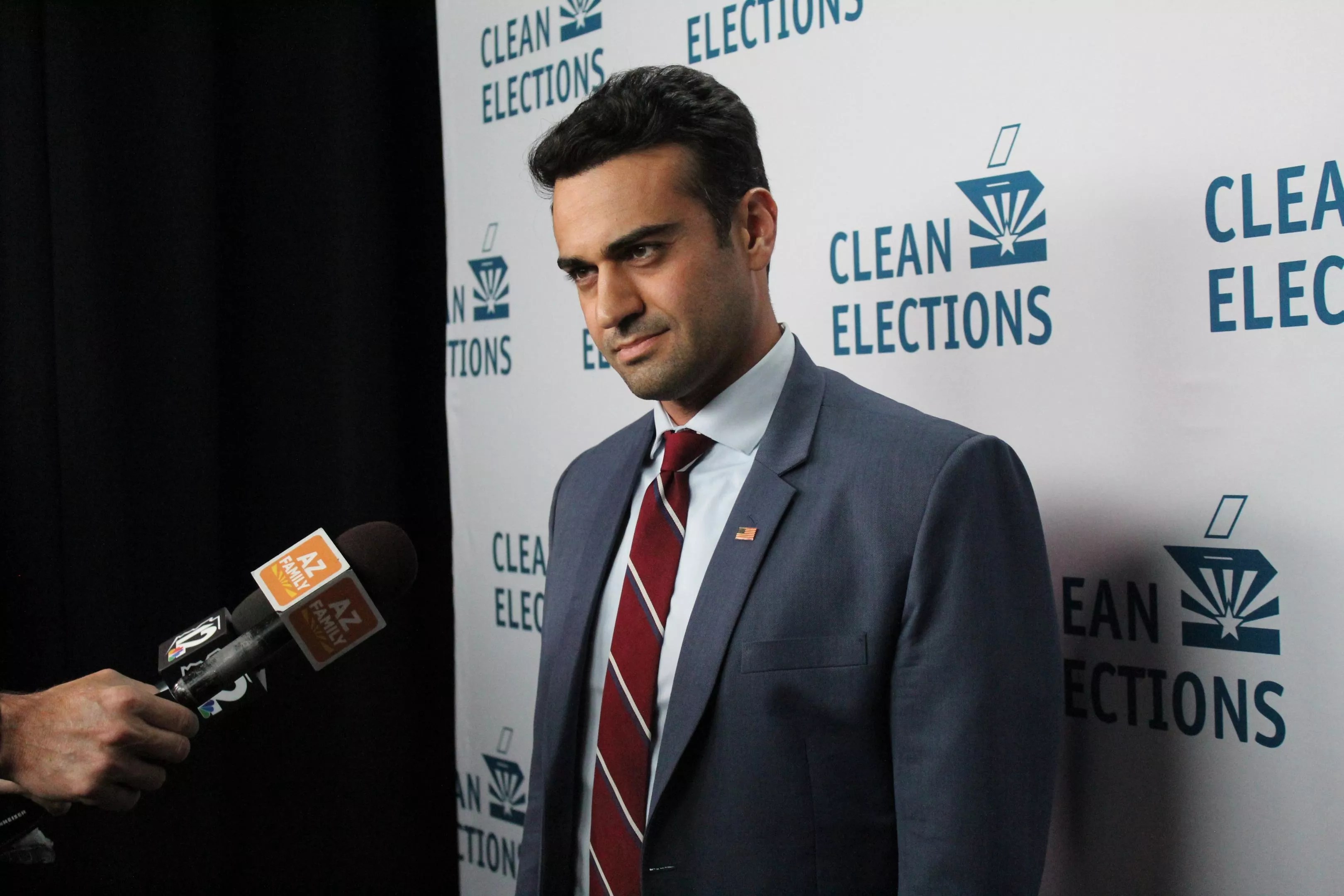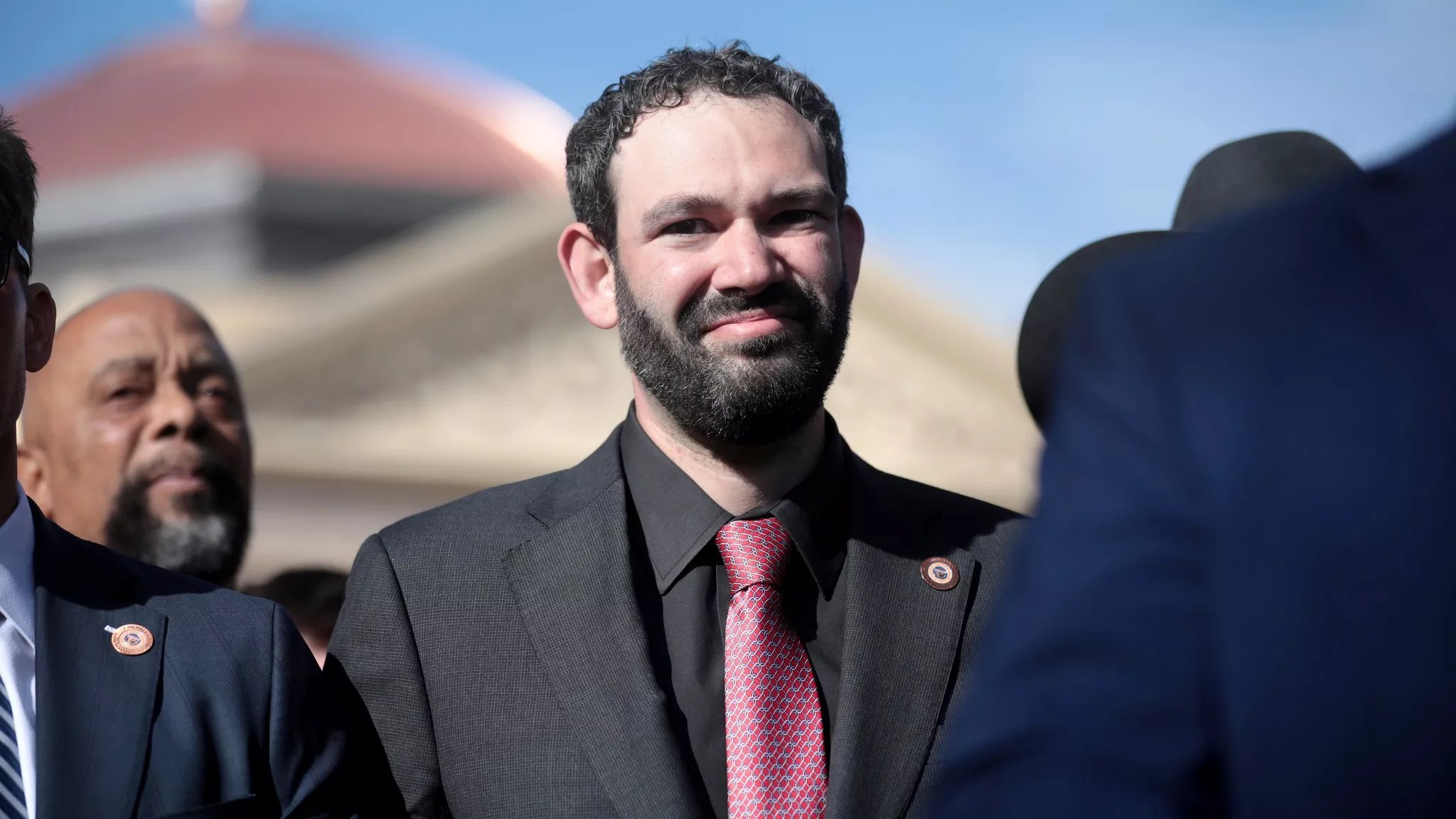
TJ L’Heureux

Audio By Carbonatix
Arizona politics has few bigger cheerleaders for Donald Trump than Abe Hamadeh.
In November, Hamadeh soared into his first term in the U.S. House of Representatives on the back of a Donald Trump endorsement, which Hamadeh trumpeted in his campaign materials. Online and in TV appearances, the 33-year-old remains one of Trump’s most ardent MAGA acolytes in Arizona.
On one subject, though, Hamadeh has been noticeably quiet. On Jan. 20, the day Trump was sworn in for a second term, Trump signed an executive order that attempts to deny birthright citizenship to the children of undocumented immigrants. The order would upend 150 years of settled law and flies in the face of the 14th Amendment’s explicit definition of birthright citizenship. Arizona and other states have sued to block it.
That hasn’t stopped the MAGA faithful from crowing about Trump’s action. And though Hamadeh has parroted much of Trump’s rhetoric – on election denialism and on other immigration measures – he has not mentioned the executive order narrowing birthright citizenship. That may be because under Trump’s order, Hamadeh would not have been born an American citizen.
Hamadeh’s parents came to the U.S. from the Middle East in 1989, entering the country on six-month visitor visas that they then overstayed. Hamadeh was born in 1991, during a years-long period in which his parents were undocumented. Though they both became naturalized American citizens in the late 2000s, Hamadeh’s parents faced deportation in the mid-1990s. They were granted a reprieve in part because their removal from the country would create undue hardship for their American-born children.
Trump’s executive order is not retroactive, but had it been in place (and enforceable) at the time of Hamadeh’s birth, he would have been excluded from citizenship. And without children who were American citizens, it’s possible his parents would have been deported. By titling his order “Protecting the Meaning and Value of American Citizenship,” Trump seemed to imply that granting citizenship to children born in Hamadeh’s circumstances dilutes the meaning and value of being American.
It’s not clear whether Hamadeh supports changing birthright citizenship in a way that would have so directly and negatively affected him as a child. He has neither tweeted nor spoken about Trump’s order publicly, and spokespersons for Hamadeh did not respond to questions from Phoenix New Times about his position. But in a 2012 tweet, he signaled he supported birthright citizenship.
Though the tweet to which Hamadeh was replying has been deleted, Hamadeh wrote that he “disagree(d)” with someone who appeared to have argued against granting citizenship to anyone born in the country. If he feels the same way now – and Hamadeh’s views on many things have changed since his youth and young adulthood – he’s not saying.

Republican state Rep. Alexander Kolodin argued that though U.S. Rep. Abe Hamadeh would not have had citizenship at birth under Donald Trump’s executive order, he likely would have been granted citizenship due to his military service.
Gage Skidmore
‘Crazy gaming of the system’
While Hamadeh has not shared his feelings about limiting birthright citizenship, other Arizona politicians associated with him have.
State Sen. Wendy Rogers, who endorsed Hamadeh in his run for office, has tweeted in support of restricting birthright citizenship, and former state Sen. Justine Wadsack has retweeted similar sentiments. State Rep. Alexander Kolodin also said, in an interview with New Times, that he supports reinterpreting birthright citizenship.
“You’ve just been getting crazy gaming of the system,” Kolodin said. “You have people who fly here to have their children so that their children will have American citizenship and then go back to their countries. This happens with a lot of Chinese, for example. It leads to way too much gamification of the immigration system.”
So-called birth tourism is not unheard of, though reasonable people could disagree over what constitutes “a lot.” Traveling to the U.S. while pregnant is not illegal, but authorities say it’s illegal to lie on government forms about the reason for travel. As of 2020, customs officials may deny visas to women they suspect of traveling to the U.S. for the sole purpose of giving birth on U.S. soil. The federal government also has successfully prosecuted people who run businesses that facilitate birth tourism.
Kolodin said he did not want to speak for Hamadeh, though he acknowledged that the new congressman would not have been considered a citizen under Trump’s interpretation of birthright citizenship. He did say that thanks to Hamadeh’s military service in the U.S. Army Reserve, “he certainly would have had his immigration application processed very quickly, even had this executive order been in place back when he was born.”
“By this point in his life,” Kolodin added, “(he) would be an American citizen regardless.”
At least one Hamadeh supporter has previously endorsed the common interpretation of birthright citizenship. Scottsdale City Councilmember Adam Kwasman, who endorsed Hamadeh during the last election, tweeted in 2018: “The 14th amendment to the U.S. Constitution is clear. All persons subject to the laws of the US, this includes all foreign nationals living in the US, except for those subject to diplomatic immunity, whose children are born in the US, have children that are US citizens by birth.” Kwasman added that “to think otherwise is to purposely misread the 14th amendment.”
Kwasman has not tweeted about birthright citizenship since Trump’s Jan. 20 executive order and did not respond to an interview request.
Whatever Hamadeh’s political allies believe, Hamadeh’s background puts him in a position to offer a unique and valuable perspective on what limiting birthright citizenship would mean for the families who would be deprived of it. He has touted his family’s immigrant success story before.
During his 2022 run for attorney general, his parents’ deportation proceeding became a topic of public discussion. Hamadeh asserted in a statement to the Arizona Republic that his parents “came to the United States LEGALLY in 1989 and were rewarded for waiting in line LEGALLY with U.S. citizenship in 2007 and 2009.”
Yet during the intervening two decades, they’d also remained in the country illegally. Hamadeh left that much unsaid.